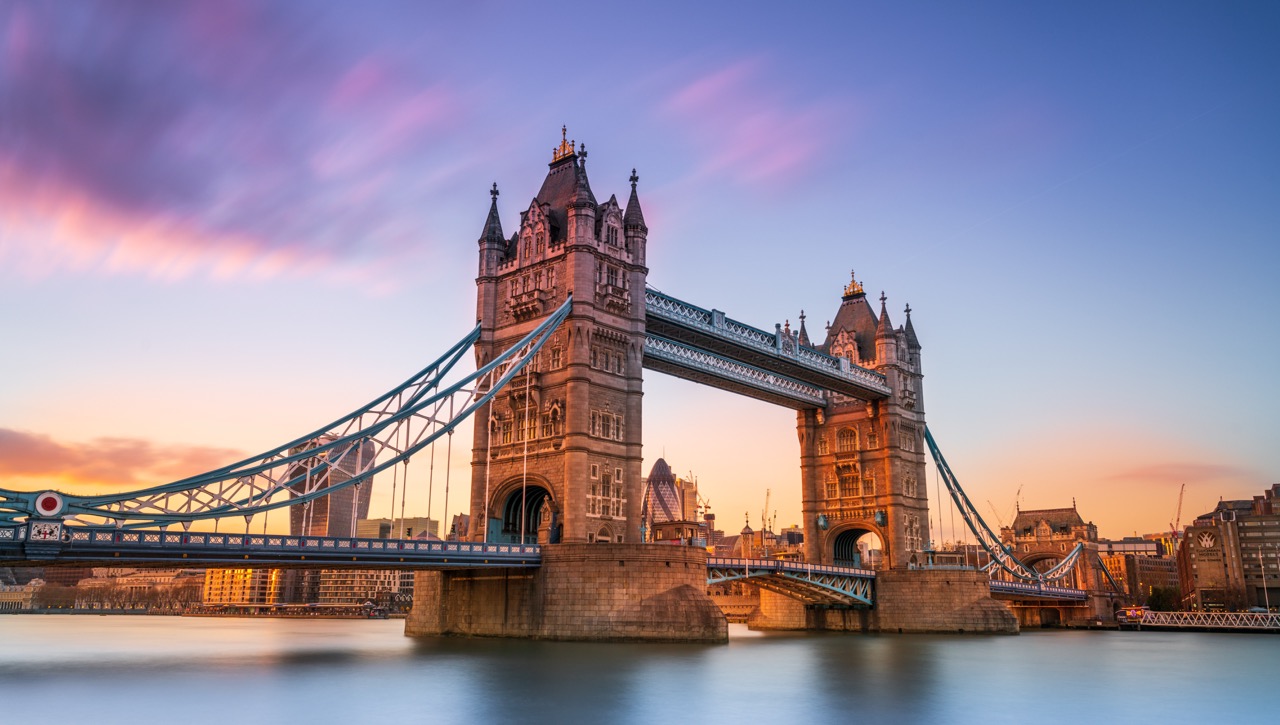The Economic and Political Meaning of the Second Coming of President Trump
‘It’s the uncertainty that is killing investment and imperilling any sustained economic growth’
Give me a tenner each and every time I have heard that refrain, or a close derivative, during the torrid past few months and I should be well on the way to untold riches.
Better still speak directly to senior executive directors whose companies’ apparently timeless business model – from frictionless global supply chains to a reliance on manufactured imports that they had assumed would continue forever - has been eviscerated by the threatened universal imposition of tariffs. The level of disruption they are anticipating, and in some cases already experiencing, places into the shadows even the worst memories of the pandemic lockdowns.
No-one can claim that Donald Trump had not warned the world that in the event of his securing a second term he would pursue an aggressive policy of America First protectionism. But few thought the path his administration has so rapidly followed would be as erratic or apparently arbitrary. The current imbroglio in the US courts has only added to the chaotic sense of precariousness that businessfolk have been working under.
For the foreseeable future (and three and a half years is a long time in modern day politics) US economic policy appear to be in the hands of someone whose whim is impossibly difficult to predict; prudent policymakers and businessfolk are using the current 90 day moratorium, which comes to an end on 8 July, not to lament what they have lost, but to work out what might happen next. Further upheaval seems likely for investors and businesses alike once ‘normal service is resumed’. Or does it?
We all believed that the long road to US-led globalisation was irreversible. The fall of Communism; the inexorable rise of technology and the irrefutable evidence that capitalism, for all its inequalities, had succeeded in lifting billions of those living in the developing world out of absolute poverty. In the first decade of the century China joined the WTO; then as the financial crisis of 2007-08 threatened to overwhelm our interconnected world, resolute collaborative action by a united international community prevented a global economic depression.
This all seems a long time ago. The conventional reaction to current events from commentators and academic economists alike has been of disbelief – the orthodox economic theory of free trade and comparative advantage has been upended. In fairness, for all his rhetoric, President Trump has weeks shown himself to be far more pragmatic when it comes to pacifying nervous markets and de-escalating tensions with China; he has also been able to rely on the underlying strengths of a resilient US economy which may yet avoid going into the recession universally predicted only a matter of weeks ago. Far less widely recognised is that the slavish and prolonged pursuit of the orthodoxy of recent decades by central banks and politicians since the financial crisis has resulted in a vast and unsustainable rise in global indebtedness and inequality.
But what happens if Trump’s shock therapy to tackle some of these structural imbalances turns out to be a success – for the US, at least? The US President has long railed against the perceived over-valuation of the dollar, as the global reserve currency. Perhaps a permanent downward shift in its value will make US manufactured exports more attractive? In the short to medium term tariffs may also help reduce the dangerously high US deficit and begin the long road to paying down its $36trn debt pile. It will not have gone unnoticed in Washington DC or New York that the cost of longer-term US Treasury bonds has spiked in recent weeks – this is the early price to be paid if the US seeks to decouple itself from unchallenged reserve currency status. Geopolitically the apparently ideal outcome for the Trump administration in its commercial and diplomatic relationship with the global community would allow the US to play by its own ‘divide and rule’ terms. We might not like it, but it has clear echoes of our conduct of international affairs when ‘Britain ruled the waves’. Regrettably the volatility and confusion that has been unleashed in recent times may hurt America’s counterparts more than the US.
So what of the UK’s options? Should we simply wait on events as this all plays out? In my view, Keir Starmer’s government should be given credit for playing a difficult hand as well as it can in the circumstances. Producing the state visit card to a US President more susceptible to such flattery than any of his recent predecessors makes perfect diplomatic sense, although it will likely induce an uncomfortable domestic political backlash when Donald Trump comes to town later this year.
The UK’s relative vulnerability outside the EU’s 450 million single market limits our room for manoeuvre if there is to be a sectoral escalation in the tariff-war; so too the fact that the UK’s national security, intelligence and defence interests are so closely intertwined with the US. The UK has bet the bank (quite literally) on open-markets, free trade and the centrality of the transatlantic relationship since 1945 so a violent shift in direction towards new alliances (even if they were readily identifiable) is not a viable option. Rebuilding continental relationships after the trauma of Brexit is work in progress and at every step, as we have already seen, will be likely to arouse domestic political opposition and accusations of betraying the will of the British people. But re-building the widest-ranging network of international co-operation - after all, diplomacy used to be one of the UK’s greatest skills - is urgently needed.
Few of the UK bilateral trade deals recently announced are comprehensive agreements; there is also a lingering doubt in my mind that having been so quick off the block to sign up an arrangement with the US, we may miss out if Trump dilutes further his tariff regime. Perversely the Conservative Opposition took to the airwaves to condemn the arrangements between UK and India (the most important of which was to make a first step on the long and winding road towards mutual recognition of professional qualifications) when in truth they should have claimed credit for having done much of the groundwork on this as part of the post-Brexit settlement. The fall in oil and gas prices and commensurate firming up in the value of sterling following the tariff announcements should also help reduce UK inflationary pressures.
Given the overall level of unpredictability that still applies, trying to work out what happens next is at best an adventure in speculation. The unexpected easing of tariff tensions between the US and China suggests that further surprise may be in store in the months ahead. What is more certain is that US President Trump’s desire to rebalance the US and global economy is shared by his senior economic team. Where they differ is over the centrality of tariffs to achieve this end. The real prize in the view of many in his team is to orchestrate a lasting devaluation in the dollar against its major trading partners in order to enhance the relative competitiveness of US manufacturing and exports. As the global reserve currency, the US dollar has arguably shouldered an unwanted burden for too long and a sharp devaluation (albeit this is something that orthodox economic theory suggests the imposition of tariffs should not induce) might bring a swift end to the extreme turbulence and an easing of the punitive tariffs.
History suggests that in the months ahead it would be wise to watch for the impact of overly leveraged investors taking fright as selected asset valuations plunge. Demands by banks for more collateral and the impact of margin calls is a familiar slippery slope. One of the lynchpins of globalisation over the past four decades or so has been the lifting of capital controls. Free movement of capital – at the very time it is most urgently needed – may also come under sustained threat before long. None of this will be made easier if central banks are unable or unwilling to co-ordinate their activities. Keep an eye open not only for Donald Trump’s hostile approach to Jerome Powell at the Fed, but closer to home for politicians - across the party divide - questioning the actions, inactions, and ultimately the independence of the Bank of England.
There is, needless to say, an even more significant geopolitical impact to these events. The age of US economic exceptionalism is dramatically drawing to a close. To be fair to Donald Trump, this process has been in train for some time - arguably since the US reaction to the 9/11 terrorist atrocities. The US work ethic and innovative energy remains strong, but a rebalancing of global investment is underway to reflect the reality that Americans own far fewer assets beyond the US than foreigners own on their shores. I have been struck in recent conversations with counterparts in Asia and the Middle East at the urgency that is being applied to efforts to build a system of international trade that relies less on the United States.
Disclaimer: The views, thoughts and opinions expressed within this article are those of the author, and not those of Capital International Group Limited (Group) and/or any of its subsidiary companies and as such are neither given nor endorsed by the Group or any company within the Group. Information in this article does not constitute investment advice or an offer or an invitation by or on behalf of any company within the Group to buy or sell any product or security or to make a bank deposit. Any reference to past performance is not necessarily a guide to the future. The value of investments may go down as well as up and may be adversely affected by currency fluctuations. The Group, its subsidiary companies, clients, and officers may have a position in, or engage in transactions in any of the investments mentioned. Opinions constitute views as at the date of issue thereof and are subject to change.
















